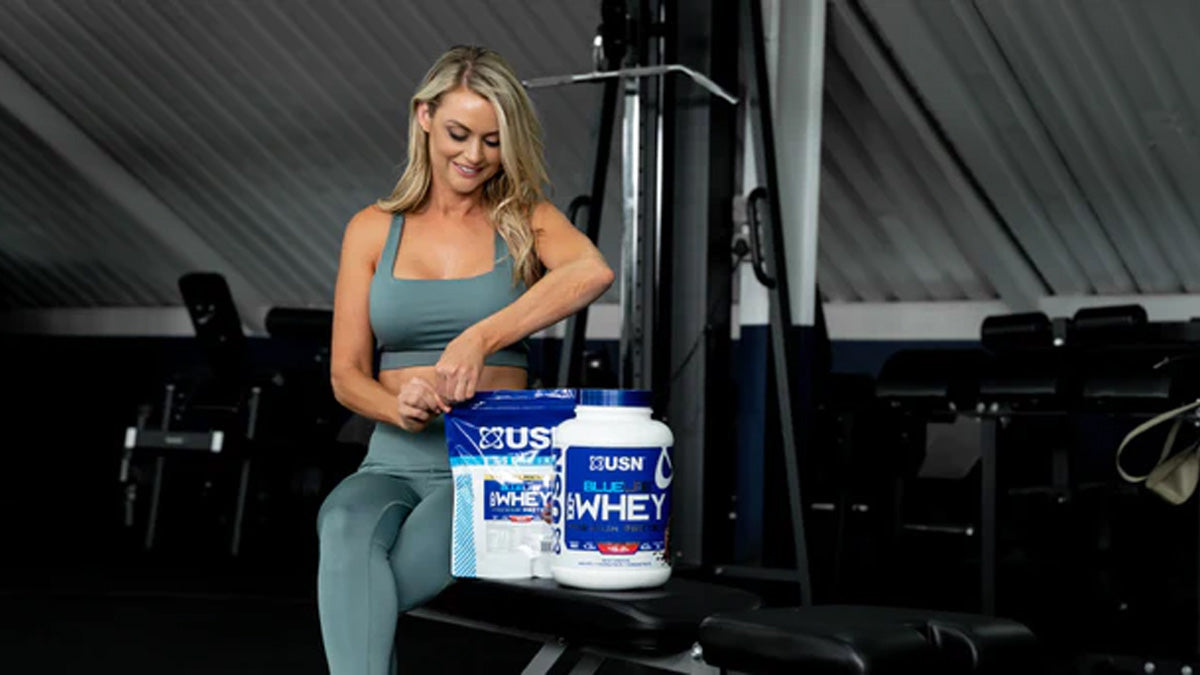Why Whey?
Whey protein is a complete protein that contains all the essential amino acids. But why should you add it to your diet?
When you follow a healthy lifestyle, counting calories and watching your sugar and salt intake have probably become second nature. But a lot of people do not realise the importance of ensuring that your body gets the protein it needs to flourish. Protein is essential to grow and repair various cells. An easy way to ensure that your body receives the protein required to thrive is to add whey protein to your diet.
What is whey protein?
First things first: what is whey protein? Milk consists of two proteins, namely casein and whey. When milk is processed to make yoghurt or cheese, the remaining liquid is called whey. Therefore, if you ever see a watery liquid on top of yoghurt, do not throw it away, as it is a nutritious source of whey protein.
Whey protein and amino acids
Whey protein is a complete protein that contains all the essential amino acids. But what are amino acids, and why is it important?
Amino acids are molecules that combine to create proteins. These molecules consist of 20 organic compounds that are categorised according to non-essential or essential amino acids. Non-essential amino acids are produced by the body and do not have to be added to your diet. In contrast, essential amino acids (EAA) cannot be produced by the body and must therefore be added to your diet.
From a fitness point of view, amino acids can help to repair damaged muscle and build new muscle, while from a health and wellness perspective, amino acids can help to regulate the immune system, assist with calcium absorption, encourage skin elasticity, and assist with the synthesis of neurotransmitters and hormones.
Why add whey protein to your diet?
Contrary to what many people believe, whey protein isn’t just for athletes and fitness enthusiasts. Many rely on whey protein to help meet their daily protein needs, lose or gain weight, or recover from an injury or surgery. You can therefore add whey protein to your diet, even if you do not exercise daily.
The benefits of adding whey protein to your diet are listed below:
It can help with weight loss
An increase in protein intake can positively affect weight loss, as it reduces your level of the hunger hormone known as ghrelin. Whey protein also helps you feel fuller for longer, reducing cravings and preventing you from snacking. Whey protein is very digestible and gets absorbed from your gut quicker than other protein sources.
It can promote muscle growth
Protein is the building block of muscles; eating adequate amounts of protein helps you maintain your muscle mass and promotes muscle growth during strength training. Whey protein is rich in the branch-chain amino acids known as leucine, the most growth-promoting (anabolic) of the amino acids. Leucine also helps to prevent muscle breakdown and encourages muscle recovery.
It can promote healthy skin, nails & hair
Since protein is one of the key building blocks of skin tissue and supplies the body with the essential amino acids required to make keratin, it is evident that it will help with healthy skin, nails and hair.
The different types of whey protein
There are three types of whey protein, namely whey protein concentrate, whey protein isolate, and whey protein hydrolysate. These types of whey protein have different protein, lactose and fat contents.
Whey protein concentrate
Whey protein concentrate is the least processed form of whey protein and therefore keeps the health-promoting nutrients that are naturally present in whey. This form of whey protein comprises low levels of fat and carbohydrates. The percentage of protein in whey protein concentrate depends on how concentrated it is.
Whey protein isolate
Whey protein isolate is further processed to remove most of the carbohydrates, lactose and fat, and usually contains at least 90 percent protein.
Whey protein hydrolysate
Whey protein hydrolysate is viewed as the ‘pre-digested’ form of whey protein as it has already undergone partial hydrolysis (a process required for the body to absorb protein). Whey protein hydrolysate is the easiest for the body to digest, resulting in a sharp rise in blood insulin levels, which can encourage lean muscle growth.
Blog Provided by USN

